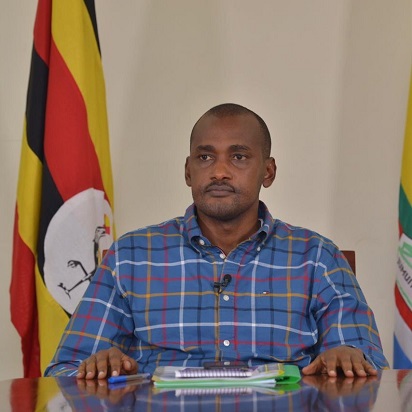The government’s project aimed at constructing secondary schools across the country, particularly in sub-counties lacking these facilities and in refugee-hosting areas, is now at risk of termination. A report on Externally Funded Projects from the Ministry of Finance, Planning, and Economic Development revealed that as the project enters its fourth year, it is experiencing significant delays and underperformance, prompting a recommendation for its termination.
“The Project is recommended for termination of funding because the Ministry of Education and Sports failed to meet the performance targets to achieve project deliverables, timelines, budget adherence, and overall impact that are clearly defined in the Project’s Operation Manual,” the report reads in part. The report further emphasized that the cessation of funding highlights the need to adhere to established performance targets and serves as a valuable learning opportunity for enhancing project execution and management practices in future initiatives.
The project, known as the Uganda Secondary Education Expansion Project-USEEP, is valued at US$ 171.6 million (approximately UGX 627.91 billion). This five-year initiative, funded by the World Bank-International Development Association, was approved and funds were released in 2022. The project also fulfills a key education promise made by the NRM government to voters during the 2021 general election, aiming to improve access to lower secondary education for underserved populations in targeted areas.
Although the project is scheduled to close at the end of next year (2025), it appears to have stalled. Documents show that four years into its execution, the project is significantly behind schedule, has not met its planned objectives, and has struggled to effectively utilize its allocated funds, with physical progress at just 6 percent. The report on Externally Funded Projects revealed that as of April 30, 2024, the cumulative disbursements totaled US$ 7.261 million, representing only 8.04 percent of the loan amount against 64 percent expected financial progress.
“The project is operating under the budget, which represents a significantly low absorption rate due to failure by MoES (Ministry of Education and Sports) to commence implementation of planned project deliverables as per scheduled timelines,” the report highlighted. The report further attributed critical deficiencies in project preparation, planning, and scheduling to the implementing agency, the Ministry of Education and Sports. It highlighted the failure to prioritize essential preparatory activities, such as the recruitment of Project Coordination Unit staff, completion of structural designs, and procurement processes, which should have been addressed before civil works and services commenced.
However, the Ministry of Education seemed to be dissatisfied with the report and its recommendations, arguing that it unfairly places blame on the implementers while overlooking prior issues that contributed to the project’s poor performance, which are not addressed in the report. Dr. Denis Mugimba, the spokesperson for the Ministry of Education, said that the Ministry of Finance tends to discuss projects with development partners and financiers without involving implementing entities, often bringing them on board only after approval.
Dr Mugimba added that the Ministry of Education, under the leadership of Minister Janet Kataha Museveni, has opposed this practice for years. In the case of the Uganda Secondary Education Expansion Project, he noted that when the project was approved, several critical elements and approvals from the government had not been made available.
The Ministry of Finance has faced repeated accusations of securing loans and grants without completing the necessary bureaucratic processes. This approach has frequently led to low budget absorption, primarily due to procurement delays and insufficient implementation capacity, among other factors.
Prime Minister Robinah Nabbanja also highlighted this issue last month during the National Annual Performance Review, noting that such inefficiencies often result in significant costs for the government due to increased commitment fees.
Regarding USEEP, Mugimba stated that over the past three years, the Ministry of Education has been working to resolve various issues and secure the necessary approvals and related processes. One of the most significant delays was the late submission of land titles by beneficiary districts, which was a condition set for clearance by the Solicitor General’s Office.
“The land issues were particularly complicated due to the differing interests of various stakeholders, including foundation bodies and local governments. However, after several meetings, including those hosted by the President himself, the ministry was able to persuade the foundation bodies to allocate part of their land for the schools, with the land titles placed under the custody of the Bank of Uganda,” said Mugimba.
All Is Not Lost
Mugimba added that before the Ministry of Finance moves forward with the recommendations from the report’s authors, it’s important to note that not all is lost. The Ministry can still track the project, as most of the challenging approvals are nearly complete.
Meanwhile, the Ministry of Finance report also included a provision to support the extension of the project, noting that the Uganda Secondary Education Expansion Project is a well-intentioned initiative that can still be salvaged.
“…project can be saved if the World Bank is engaged to allow restructuring of the project to fit in the remaining time (Fast track procurements, confirm the number of schools to be constructed, and the relevant MDAs conclude the designs for the various sites.),” the report added.
The Affected Project at Glance
Uganda Secondary Education Expansion Project aims to construct 177 new and expanded lower secondary schools across the country, with 32 of these located in Refugee Hosting Districts and 84 in targeted sub-counties that met specific criteria.
Additionally, it sought to improve infrastructure in 61 existing schools within the Refugee Hosting Districts. Implementation of the project was planned in three phases. Phase I included the construction of 60 schools (10 in Refugee Hosting Districts and 50 in non-Refugee Hosting Districts). Phase II focused on the construction of 61 schools for expansion within Refugee Hosting Districts, while Phase III targeted the construction of 56 new secondary schools (14 in Refugee Hosting Districts and 42 in non-Refugee Hosting Districts).
A portion of the funds was projected to cover school capitation grants for 93 new and expanded schools in Refugee Hosting Districts, which depended on the number of refugee students enrolled each year.
The project also included support for the development and execution of the Accelerated Education Program, which provided students who missed the opportunity to enroll in lower secondary school—due to reasons such as displacement or pregnancy—with a fast-track learning opportunity.
To assist refugees in obtaining the necessary documentation to start or continue their secondary education, the project was designed to facilitate certification of prior education through the Ministry of Education and Sports and the Uganda National Examinations Board. The target population included 29,951 refugees and 51,867 host community children aged 13-18 eligible for lower secondary education.
Additionally, a sub-component of the project is to support the establishment of a Continuous Professional Development system for teachers in all public and poorly performing private secondary schools, including those in Refugee Hosting Districts. This targets about 14,880 teachers and administrators.
-URN





